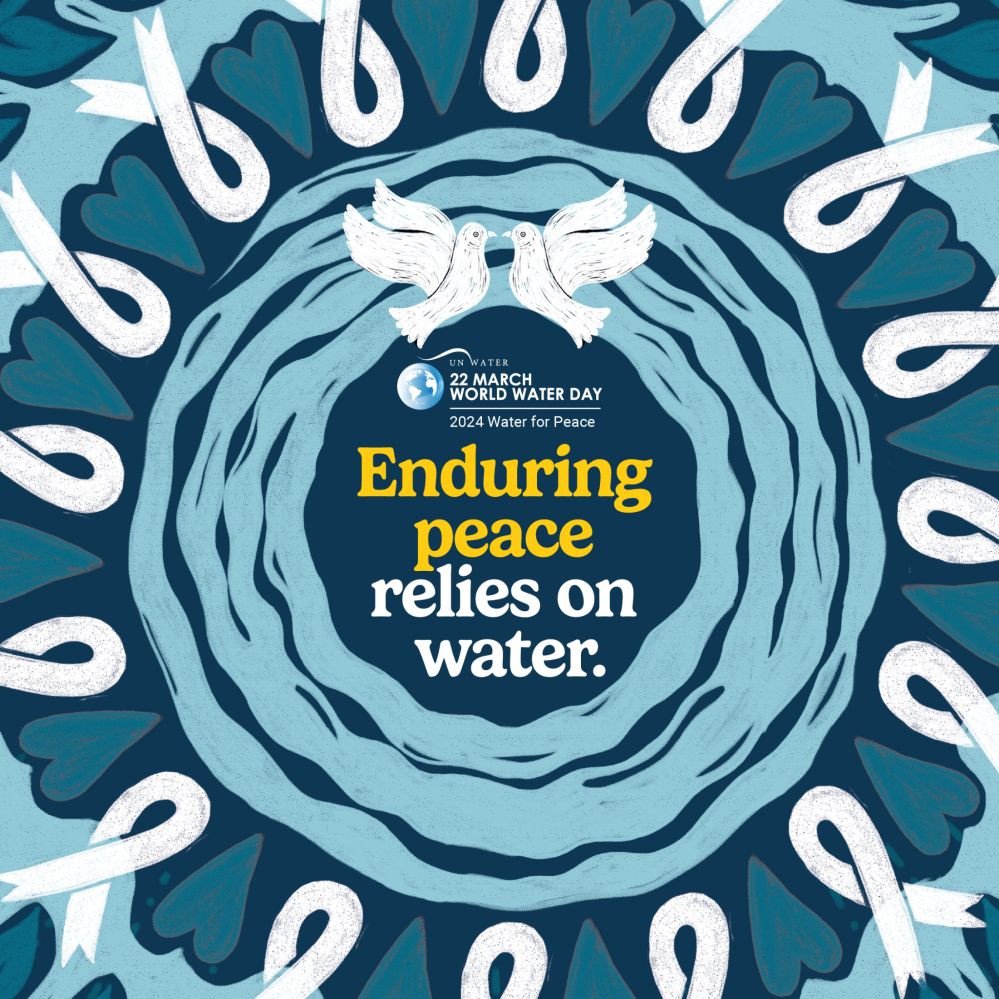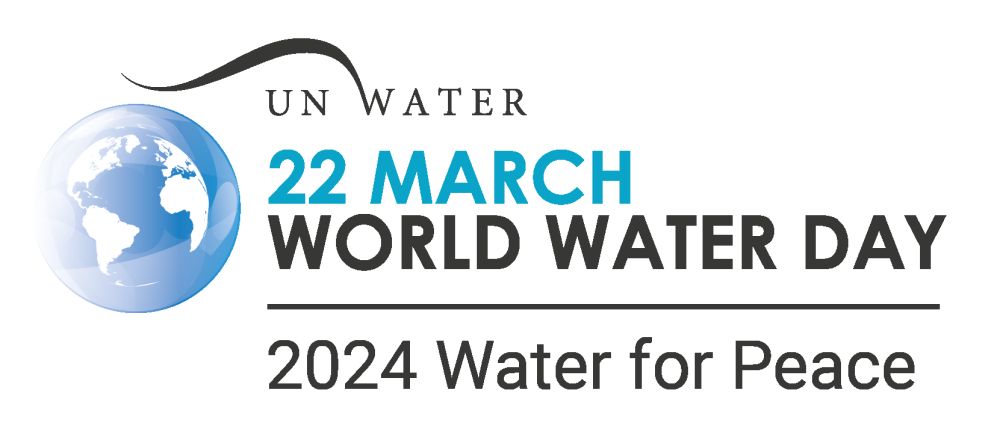Water for Peace: World Water Day 2024
With half of the world’s population experiencing water scarcity for at least a month a year,1 we are teetering on the brink of a global crisis. Our freshwater sources are stretched thinner and thinner as our populations grow and climate change exacerbates droughts and floods. 60% of these water sources are shared between borders2 but with only 16% of the countries that rely on them having cooperation agreements,3this pressure can snap quickly and transform water into a trigger for violence, a weapon, or a casualty.
The amount of violent water-based conflicts has skyrocketed in the last 12 years.4 For instance, water scarcity has regularly triggered clashes5 between herdsmen and crop farmers in the Sahel region of Africa after a long history of institutional discrimination against pastoralism.6 Furthermore, the Israeli and Russian governments have weaponized water scarcity against Palestine and Ukraine respectively by destroying water wells, pipelines, and treatment plants.7
Driven by these statistics and ongoing conflicts, the United Nations has dedicated this year’s World Water Day on March 22nd to “Water for Peace”. UN-Water explains that the mission behind the theme is to collaborate with the commitment of including everyone’s needs.8 In the UN Special Rapporteur’s report on “Human rights to safe drinking water and sanitation”, Mr. Pedro Arrojo Agudo elaborates on this mission, stating that “peace is not only the absence of war. It has a broader sense that rejects violence and social injustice, poverty, discrimination against women, racial segregation and other forms of violence.2” Therefore, World Water Day should inspire us to envision water as a means to be actively anti-racist, anti-sexist, and anti-caste.
Water as a mechanism of peace that dismantles racism and sexism is essential in the United States of America. Its water systems are built and maintained via settler-colonial violence against Indigenous peoples. For example, the city of Los Angeles actively helped remove multiple tribes from their homelands and now relies heavily on water from those stolen lands like Payahǖǖnadǖ (or Owens Valley) in eastern California. In the 1860s, the Nüümü (or Paiute) were forcibly removed from their homeland of Payahǖǖnadǖ by white settlers, ranchers, and miners aided by the U.S. military.9
Several decades later, L.A. was quickly outgrowing its local water supply so William Mulholland, chief engineer of the Los Angeles Department of Water and Power, set his sights on Payahǖǖnadǖ.10 Despite having bought most of the valley by 1933, LADWP still wanted the remaining land that the surviving Nüümü lived on.9 After failing to force them off, the city exchanged that land with the federal government without consulting the Nüümü, reducing their land by half11 on the argument that the federal government could better control them.9 No water rights were included.9

LA has been depleting the Nüümü and the valley of about 230,000 to 500,000 acre-feet of water annually ever since.12 Today, water table levels have dropped up to 75 feet.12 Despite the city’s promises to give water rights back to the Nüümü, they still do not have them.12 This has occurred to other Tribal Nations along the Colorado River and the San Joaquin-Sacramento Delta, where Tribes have been stripped of their riparian and water rights and they are still fighting to be heard.
However, there is hope that we can overcome this violence as a world together. International commitments to aid water-related infrastructure have increased since 2015.3 The UN Special Rapporteur argues that human rights are often not given priority without public participation2 so speak out for water this World Water Day. To get involved with the water committee and the issues they cover visit https://socalwatersierraclub.org/ .
References:
1) IPCC AR6 WGII Fact Sheet Food And Water
2) Human rights to safe drinking water and sanitation : note by the Secretary-General
3) Summary Progress Update 2021: SDG 6 — water and sanitation for all
4) Water conflicts continue to worsen worldwide
5) How water shortages are brewing wars
6) Don't call it a farmer herder conflict
7) Water and warfare: the battle to control a precious resource
8) U.N. World Water Day
9) Payahǖǖnadǖ water story
10) Flood desert California water wars turn violent
11) Owens Valley Indian Water Commission water crusade
12) Dear Los Angeles you're drinking indigenous water
SK is a member of the Angeles Chapter Environmental and Social Justice Committee and is interested in ending fossil fuel dependency.



Add new comment